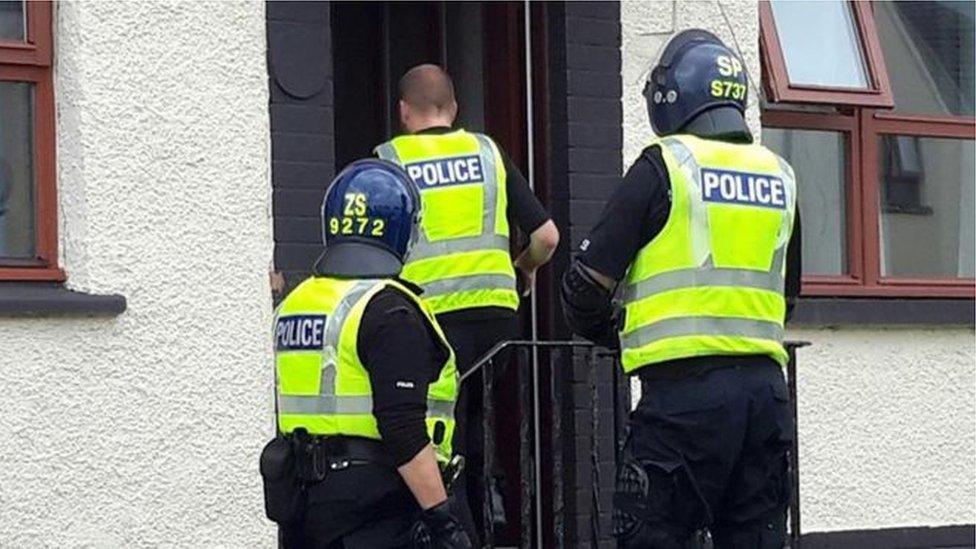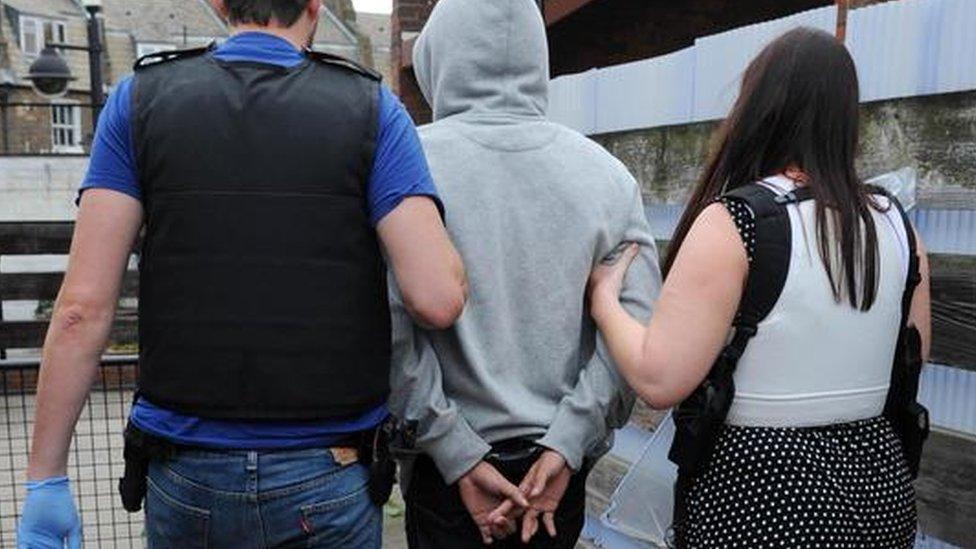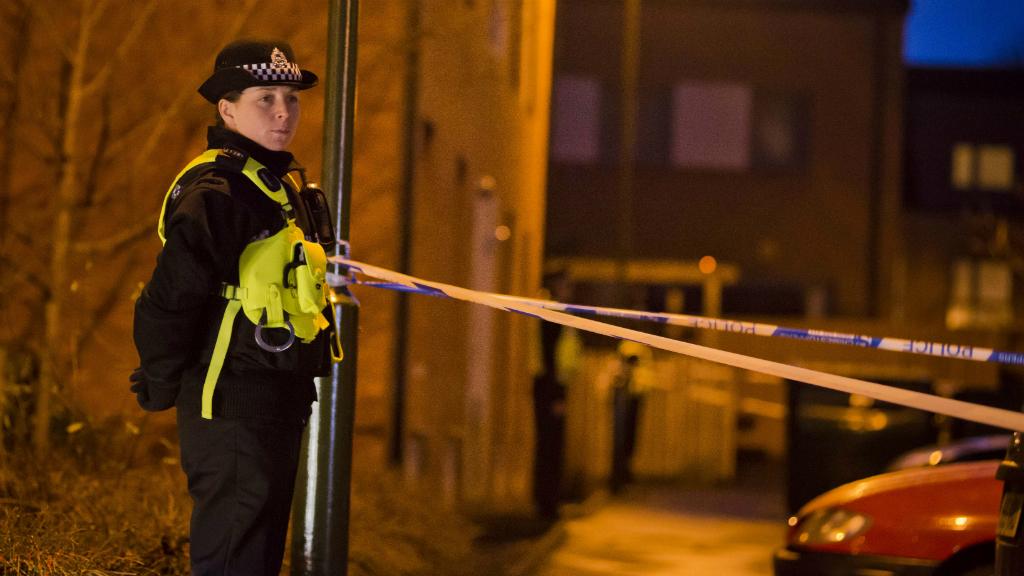Violent crime rises after long-term fall
- Published
- comments

Police said violent crime was down over the past five years
Serious assaults, murder and robbery are increasing in Scotland, according to documents obtained by the BBC.
After more than a decade of violent crime and knife use falling, the papers show that the use of weapons in west central Scotland is also up.
Police Scotland said violent crime was down over the past five years.
They said much violent crime was "common assaults" and many were domestic assaults which had been under-reported in the past.
Police said crime overall was down to a 40-year low.
Last week, figures for England and Wales also showed that homicide and knife were rising slightly after years of decrease.
Statisticians said there had been a "near-continual decline" in police recorded crime between 2004 and 2014 but it had shown a small increase since.
The BBC obtained the Scottish crime documents under the Freedom of Information Act from Police Scotland's own Violence Reduction Board, a new body set up a year ago.
Analysis shows that in the past nine months murders were up 31% compared with the same period in the previous year, although it had seen the lowest number of recorded homicide cases for a single 12-month period since 1976.
In the year to the end of March 2016, 57 victims of homicide (murders and culpable homicides) had been recorded - down five on the previous 12 months.
George is homeless and says he has seen how serious violence can quickly erupt on Glasgow's streets
However, the new figures also showed serious assaults were up 6% and robbery 7%. Attempted murders were down 27%.
Glasgow's former reputation as the violence capital of western Europe has been transformed, with a major focus on crime prevention and initiatives such as No Knives, Better Lives and the work of the Violence Reduction Unit.
Politicians and police have been keen to highlight the change, so the revelation that it is creeping back up is likely to be unwelcome.
Further analysis of figures shows that in the past nine months domestic abuse was up 2.5%, culpable homicide rose 22%, and handling a bladed weapon was up 4.4%.
The documents show that the police's own Violence Strategic Assessment "shows analysis indicating there is an increase in the use of weapons in violent crimes in West Central Scotland".
And Police Scotland correspondence notes: "Increases have been noted in murder, serious assault, robbery, common assault... compared with 2015/16."

Ch Supt Barry McEwan said crime was down overall
The papers highlight concerns about why such increases might be taking place.
The Violence Reduction Board minutes raise concerns about whether it could be related to the police cutting their use of stop-search tactics but finds no positive correlation.
The papers talk of commissioning research and using particular divisions as test grounds to try to find out why violence is again on the up.
'Complex picture'
Ch Supt Barry McEwan said: "Violent crime is down more than 4.8% on the five-year average, indicating that violent crime continues to show a downward trend in the longer term.
"The vast majority of violent crime comprises of common assaults."
He added: "In addition, nearly one quarter of all violent crimes are linked to domestic incidents.
"We know this is an area of under-reporting and we have been encouraging people to come forward about domestic assaults."
The detective added: "While acknowledging the rise in certain areas during this period, the previous year had the lowest murder rate ever recorded. Also in this period, there was a notable fall of 27% - 63 fewer offences of attempted murder."
He said Police Scotland would continue to enhance its intelligence-led approach to help identify the root causes of anti-social behaviour and hotspots to improve local operations.
Ch Supt McEwan said: "This is a complex picture, with alcohol being a significant contributory factor in violence.
"To help us understand this complex issue we have established a National Violence Prevention Board with our key partners to ensure there is a joint continued focus in this area and have launched Policing 2026 to meet the projected needs over the next decade."
- Published27 April 2017

- Published11 October 2016
